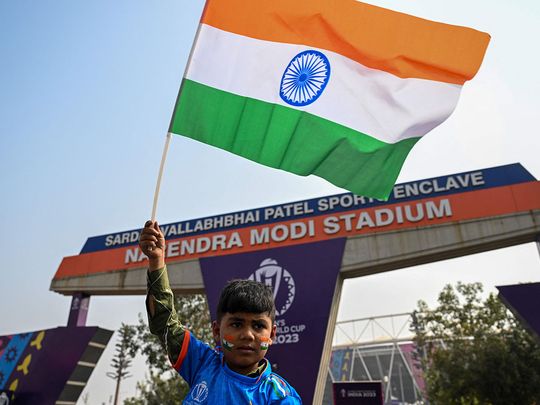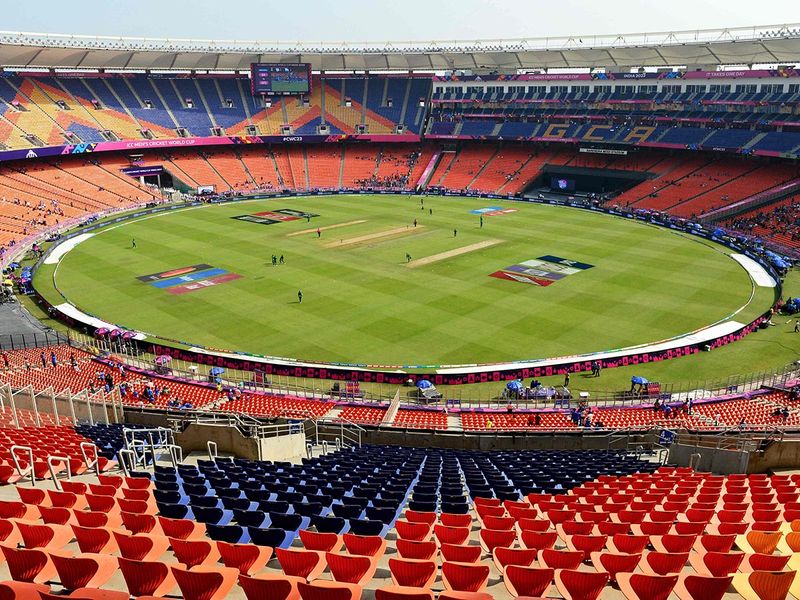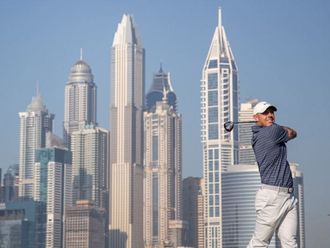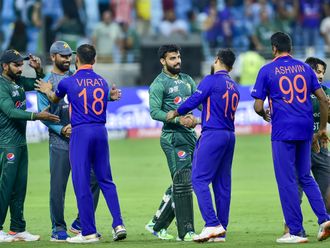
Ahmedabad, India: As Prime Minister Narendra Modi cheers India in the blockbuster climax of the Cricket World Cup Sunday, commentators say he is also seeking to capitalise on the wildly popular sport to burnish his appeal ahead of elections next year.
For tournament organisers and for Modi - after whom the world's biggest cricket stadium is named - it is a dream finale.
Cricket is a national sporting obsession, and local fans are hoping to see their team continue its streak of 10 straight tournament wins as it faces Australia in the final.
Commentators say Modi has tried to co-opt cricket, turning it into a powerful political tool to bowl out political opponents by piggy-backing on the popular appeal of the game.
Writer Suresh Menon called the marathon World Cup tournament - totalling 48 matches over 46 days at 10 carefully selected venues - the "greatest interactive election campaign".
Sport and politics are already run hand-in-hand: Modi's Hindu-nationalist Bharatiya Janata Party (BJP) is closely tied to India's hugely wealthy Board of Control for Cricket in India (BCCI).
Watching the match with Modi will likely be his right-hand man, Home Affairs Minister Amit Shah and his son Jay Shah, the BCCI chief.
'Strident'

All three come from western Gujarat state, where the critical games of the tournament have been played in the 130,000-seat Narendra Modi mega-stadium in Ahmedabad.
"It is no coincidence that the inaugural match, the final, the India-Pakistan match, the Australia-England match - all the key contests - were played at the Ahmedabad stadium," Menon told AFP.
Hundreds of millions of fans in India will follow the final match, with a victory sure to trigger euphoric celebrations.
The show-stopper final is set to include an airforce flypast, laser show, and hundreds of dancers performing Bollywood hit songs.
It is not the first time Modi has brought politics into the stadium.
In 2020, he hosted then-US president Donald Trump during a rally, while in March, he rode with his Australian counterpart Anthony Albanese in a golden chariot around the grounds before a match.
Modi's government is far from the first to use cricket for political gain, but his populist BJP "has been more strident about it, more organised and less subtle", Menon added.
If India win, the team will not be the only victor, said cricket historian Ramachandra Guha.
"Many Indians will be quick to seize on that as further proof of the visionary leadership of Narendra Modi, and of our impending global dominance in spheres other than cricket as well," Guha wrote in The Financial Times.
Olympic dreams
Many see the World Cup as a stage show for Modi's domestic politics, in the same manner that hosting the G20 summit in September was for his global ambitions.
The 73-year-old leader, who is pushing for India to gain a permanent seat on the UN Security Council, painted the G20 as his country's diplomatic coming of age.
India overtook China as the world's most populous country earlier this year, after displacing former coloniser Britain as its fifth-biggest economy in 2022.
But, beyond Modi's image adorning posters lining the streets, the G20 had little impact on the lives of ordinary Indians compared to the excitement and coverage of cricket.
"This total domination at an international game is a first for our nation," author Chetan Bhagat wrote in the Times of India on Saturday.
"It is also a template for how India can be the best in the world in another sport, in industry, business or even our infrastructure."
The World Cup is a key chance for Modi to illustrate his bigger sporting ambitions too, after last month announcing India would bid to stage the 2036 Olympics, with Ahmedabad a likely venue.
Cricket will feature in the 2028 Olympic Games in Los Angeles, the International Olympic Committee announced last month in Mumbai.
'Jingoistic'
Under Modi's tenure, India has slumped in Freedom House's rankings for political rights and civil liberties, with police cracking down on protests, the ruling party scoring lavish funding from business allies and press freedoms curtailed.
His political career and success have been based on support from India's one-billion-plus Hindus and, critics say, stoking enmity toward the country's large Muslim minority.
Ahmedabad was the centre of deadly 2002 religious riots in which at least 1,000 people, mostly Muslims, were killed in sectarian violence that sent shock waves around the world.
As head of the Gujarat state government at the time, Modi was subsequently dogged by accusations that he turned a blind eye to the unrest, and was for a time subject to travel bans imposed by the United States and others before being cleared of conspiracy.
Modi's BJP is widely regarded as a certainty to win next year's general election, but is still "leaving nothing to chance", Guha added.
The World Cup is a "spectacular" show to aid that, he said, through "stoking of nationalistic, and occasionally jingoistic, pride through the medium of what is not merely the favourite sport, but also the most alluring form of entertainment, for Indians today".




